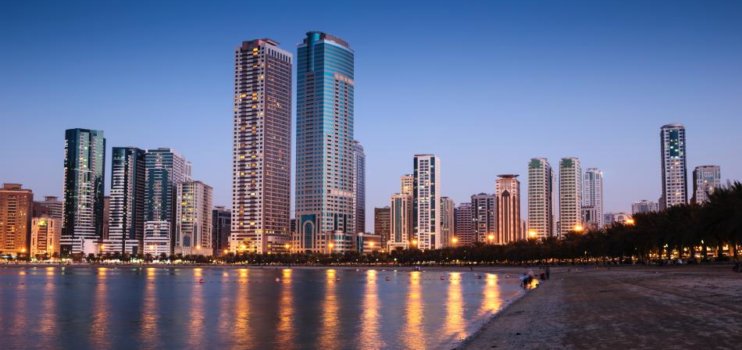Importance of Global Cities.
Does a global city automatically qualify as a Logistics Hub (and visa versa)? Due to their increasing influence on world trade, global cities must be on the list of topics that interest Logisticians. Saskia Sasson, a theorist on global cities, calls them “strategic sites than run the world – banks and markets that finance the global economy and knowledge intensive firms that deliver services essential to their operation”.
This week, Melbourne hosts the Ecocity World Summit, one of the world’s largest urban planning conferences. The publicity states there are 50 cities which claim to be ‘global cities’. While most global cities have population in excess of three million people, cities do not have to be big to be global, Conversely, cities with large populations, such as Karachi, Kolkata and Lagos are not considered as being global, due to their low influence in global affairs.
But, there are challenges for global cities, including:
- Relating to the regions around them: global cities are becoming detached from their hinterlands and potentially absorbing their economies. Instead, global cities are integrating with other cities and the international flow of capital, goods, people and ideas
- Climate change: global cities are more efficient users of energy, but they produce a lot of pollution
- Economic inequality: homeless and poor people are an increasing feature in global cities
There is not a single definition, or a single list, of global cities. Two lists that are sometimes quoted (by default, making them authoritative) are the Chicago Council on Global Affairs and the ‘Global Cities Index and Outlook’ published by the consulting firm AT Kearney.
The criteria for a global city used by the Chicago Council on Global Affairs are summarised in the following four groups:
- Civic – effective city government
- Understand and sell the city’s global standing
- Supported by active NGOs (think tanks, institutions, foundations and international conferences)
- Quality of life – urban transit systems, clean environment, safe streets, quality health care
- Recognise the value of immigration, open trade, open media and digital communication
- Commercial – powerful business and financial community with global connections
- International airport(s)
- High band width broadband communications
- Education and research
- High ranking universities and quality schools
- Hubs for innovation
- Well-educated workers providing human capital and know how
- Open to new ideas and people – migrants, contractors and visitors
- Cultural
- Popular culture through media outlets and creative industries
- Arts and entertainment, restaurants and vibrant night life
- Diversity of people through immigration and ‘global people’ working on contracts
AT Kearney uses nine criteria, but do not provide supporting detail concerning the headings. However, there are similarities with the Chicago criteria:
Index criteria
- Business activity 30%
- Human capital 30%
- Information exchange 15%
- Cultural experience 15%
- Political engagement 10%
Outlook criteria
- Personal well-being 25%
- Economics 25%
- Innovation 25%
- Governance 25%
A Logistics Hub
To answer the question ‘Does a global city automatically qualify as a Logistics Hub’? consider the four main requirements of a Logistics Hub:
- Consumer market:
- A Hub is a means of servicing a consumer market, so together, the city and its hinterland must be of a size to support a Hub. The size is governed by sufficient citizens having a shared common interests as consumers and the discretionary buying power of the citizens
- Quick access to the consumer market of a Logistics Hub is increasing in importance for a range of consumer goods. This requires cities to invest in communications infrastructure, enabling efficient and quick (same-day or next-day) fulfilment of electronically placed orders and the capability to scale up resources, based on demand
- Investment in physical infrastructure:
- Multiple transport options: at least two of – major seaport, airport and inter-modal rail facilities are required
- For ports, adequate container and cargo handling facilities – berths plus container storage areas, with secure facilities and tracking of movements. A port is NOT the logistics hub, but a channel to the services of the Logistics Hub.
- Road infrastructure to manage congestion and density; providing effective connections for consumers
- Regional transport infrastructure to provide effective connections for consumers
- Multiple transport options: at least two of – major seaport, airport and inter-modal rail facilities are required
- Value-adding logistics services
- Create country-specific and/or customer-specific variations of generic products. Provide assembly and customisation, final inspection, packing and labelling
- Professional services to assist logistics activities: financial services (tax, futures markets, financing accounts receivables and inventory; trade finance); international trade legal services; freight insurance; IT software and communications; education and training
- Sales and after sales service networks
- Regular connections to international locations via other logistics hubs
- Low risk political environment
- Competitive charges and taxes – amounts paid and payment processes across all modes of transport
There are some requirements of global cities and Logistics Hubs that have similarities, but the overall requirements of a Logistics Hub can mean that its location does not have to be in a global city. However, there could be a growing influence that could affect the importance of particular Logistics Hubs.
Multinational corporations (MNCs) are increasingly reliant on Logistics Services Providers (LSPs) for the movement and storage of items. Yet, the pressures surrounding global trade and transport means the LSP industry continues to consolidate into fewer and larger operators. Although a high proportion of international trade is between related parties (divisions and affiliates of MNCs) and therefore shippers could manage their supply chains, there is a likelihood that LSPs will base major operations in Logistics Hubs of their choice. That choice could well be in global cities, because it is here that firms which service LSPs are located.

